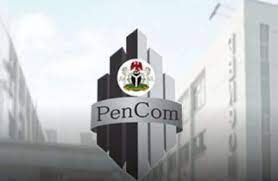Alhaji Aliko Dangote, President of the Dangote Group, has climbed to the 86th position on the Forbes billionaire rankings as his net worth surged to $23.9 billion. This marks a significant leap from his 144th position in 2024 when he was worth $13.4 billion.
This remarkable financial growth comes just a year after the $20 billion Dangote Petroleum Refinery commenced operations in Lagos, disrupting the long-standing oil monopoly in Nigeria.
According to Forbes’ latest report on Tuesday, Dangote remains the wealthiest individual in Africa, largely due to his 92.3% stake in the Dangote Refinery. The 67-year-old businessman has reclaimed a spot among the world’s top 100 billionaires, a position he last held in 2018.
Dangote’s rise places him significantly ahead of South African businessman Johann Rupert, who is ranked 161st with a net worth of $14.4 billion, and fellow Nigerian entrepreneur Mike Adenuga, who ranks 481st globally with an estimated fortune of $6.8 billion.
Dangote’s refinery has been a game-changer for Nigeria’s energy sector. The $20 billion facility, with a production capacity of 650,000 barrels per day, is the largest petroleum refinery in Africa and the seventh-largest in the world.
The refinery’s impact is already being felt in the global energy market, as Nigeria’s petroleum imports are set to reach an eight-year low. This shift is affecting European refiners who have historically relied on Nigerian demand for their fuel exports.
Alongside the refinery, Dangote’s petrochemical complex has an annual production capacity of three million metric tonnes of urea, making it Africa’s largest fertilizer producer.
Dangote’s ambition extends beyond business—he envisions his work as a blueprint for industrialization across Africa.
“I want to provide a blueprint for industrialisation across Africa. We have to build our nation by ourselves. We have to build our continent by ourselves, not [rely on] foreign investment,” Dangote told Forbes.
He also acknowledged the enormous risk involved in the refinery project, stating that failure would have been disastrous.
“It was the biggest risk of my life. If this didn’t work, I was dead,” he admitted.
Zainab Usman, Director of the Africa Programme at the Carnegie Endowment for International Peace, noted that Nigerians view Dangote as a transformative figure.
“He is seen in most parts of Nigeria as a hero. He is seen as a real industrialist who builds things,” she told Forbes.
Dangote’s rise to global prominence highlights not only his business acumen but also his role in reshaping Nigeria’s industrial landscape and reducing the country’s reliance on foreign oil imports.












